Integrity is not something you show others, it’s how you behave behind their back
Ken Burnett, SOFII’s founder, looks at questions of integrity in fundraising and where it’s lacking, asking the question ‘Whatever has happened to plain ol’ knowing right from wrong?’
- Written by
- Ken Burnett
- Added
- September 24, 2020
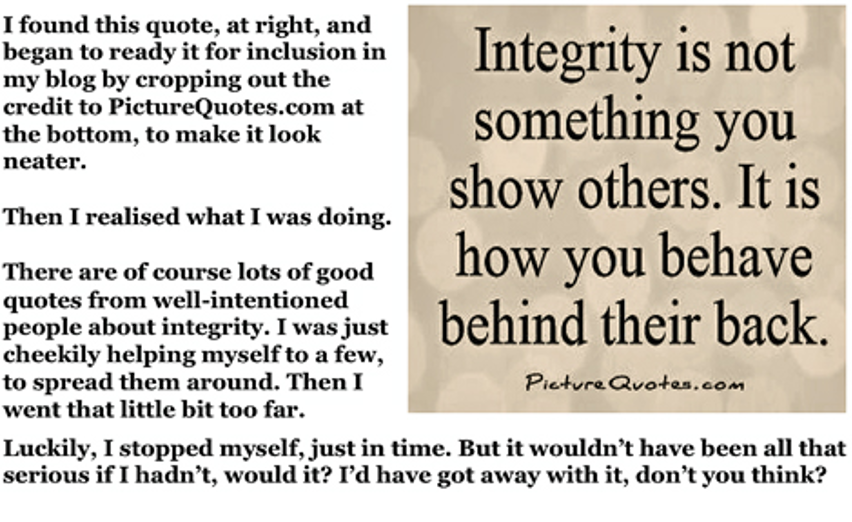
I’m sure the irony in this confession will not be lost on you. Integrity does not include cropping out the guys who provided the quote. If any business sector anywhere should be suffused top to tail and through and through with integrity, it’s ours, the not-for-profit sector, the let’s-change-the-world-for-the-better sector. Only, sometimes it seems too easy to almost unknowingly let that integrity slip. Mea culpa.
Looking through the body of work from the Commission on the Donor Experience and their mission to change the culture of how charities do fundraising, you’d be immediately struck by how often integrity emerges as the human quality that, most of all, is missing, so much of the time, whenever fundraising approaches go wrong. When we look at how fundraising, from the donor’s view, has fallen short of expectations, it’s a lack of simple integrity that so often stands out.
A recent example hit me particularly forcefully. We published an article preparing the ground for CDE project 13, Giving donors choices and managing preferences, and the inevitable assault came in from a critic in Australia. He condemned all 30 years of the Camphill Village Trust (CVT) case history’s successes (see here) because their system of giving donors choices so they can control what they receive from the charity has, in his words, ‘never been tested against a control group. No controlled testing of any kind had ever been done to prove the strategy works at all’.
Literally, in the absence of insight and understanding, he’s quite right. But add in some understanding and integrity and you’ll see he’s so, so, so wrong.
CVT gave their donors control because it was the right thing to do. Why on earth would they then deprive a control group of the right thing, just to see if it might make a marginal difference to how much more or less they might give? They were not offering donors choices to make more money. They were offering choices because it seemed to them the right thing to do.
The right thing to do, by our donors
Integrity. We need to factor it in whenever we deal with donors. If fundraisers had had an eye to integrity, none of what’s come to be known as ‘the Olive Cooke affair’ and the attendant attacks on charities for flagrant bad practices could have happened. Regulation can pick up the worst excesses, of course and should be strictly applied, with sanctions that bite. But we need integrity all the time, as a reality check against everything we do, so everyone always asks, ‘Is this the right thing to do, by our donors?’
We’d all like to think that instances of fundraisers interrupting people as they go about their business with pushy, unwanted persistence are a thing of the past. But we all know it still happens, despite the public spotlight.
When fundraisers make people feel guilty, where is integrity? When fundraisers make people cross the road or feel bad about what they decide not to do, as opposed to good about what they can do, where is integrity?
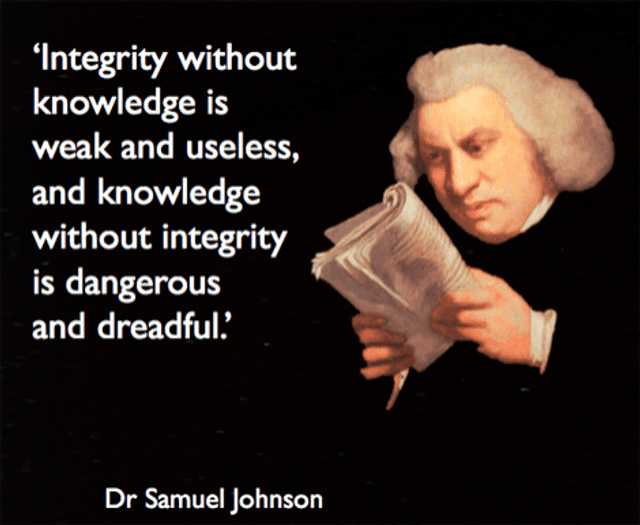
When fundraisers carelessly refer to donors in negative or demeaning terms, or use language that might easily offend or deter, where is integrity? When we are slow or inadequate with feedback to show donors the difference they make, where’s our integrity then?
When fundraisers ask for donations in a campaign without mentioning that the donor already gives regularly by direct debit, because they know some will forget they already give that way and so sign up multiple times, where is integrity?
When fundraisers say, ‘as long as your next mailing generates more money than it costs, you can mail more’, or ‘the more asks the better the on-going retention’, or ‘…your charity really should have an aggressive bequest marketing programme’, where is integrity?
My wife Marie wanted to renew her membership of the Women’s Equality Party but couldn’t because they wouldn’t let her pay by any other means than direct debit, which Marie wouldn’t do. Where’s their integrity? (I joked that at least they haven’t suggested that the man of the house should countersign it. Which didn’t go down at all well. Add this to the confession above and I’m looking at my own integrity again, believe me.)
Leadership
Integrity of course is a leadership issue. It has to come both from the top and from below. It has to be inescapable, robust enough to withstand constant challenge from all sides. It should never sleep.
Why are retention rates plummeting?
Maybe a shortage of integrity has something to do with it. Perhaps the signs have been there a long time, but recent scandals and exposures have given at least some of our publics a sense that they need no longer put up with behaviours from charities that they don’t like.
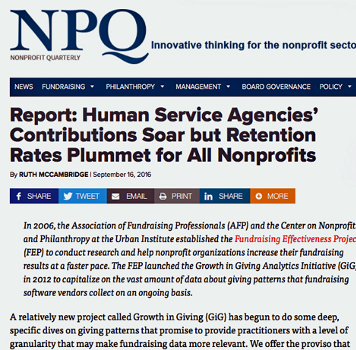
Perhaps it would help if we were to revisit integrity in all our dealings with donors.
Integrity: the quality of uprightness, generally a personal choice to hold oneself to consistent moral and ethical standards. Being honest and having strong moral principles. Its secondary meaning, the state of being whole and undivided, would be a good one for our profession too.
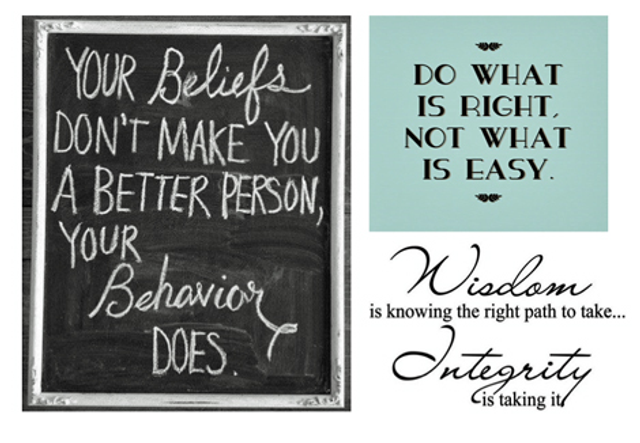
The hugely respected Agitator ran a piece on the subject of fundraising ethics, prompted by a paper from the UK think tank Rogare. I wrestled with its packed 20+ pages and I’m sure there’s useful stuff in there somewhere but I was struck by a comment one of their readers added to the Agitator’s review of it.
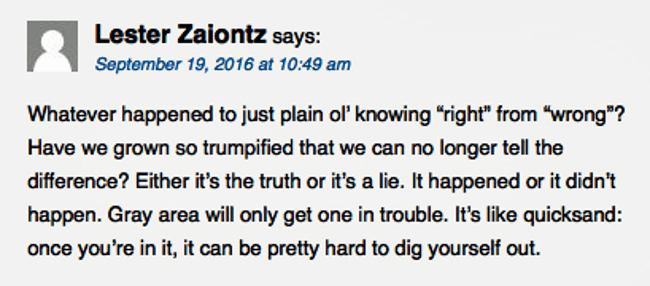
Indeed! Well said, Mr Zaiontz. Whatever has happened to plain ol’ knowing ‘right’ from ‘wrong’?
© Ken Burnett 2020. This article was originally published on Ken Burnett’s website in 2016.
Related earlier articles: • Doing the right thing by donors. • Pure gold: the 34 essential foundations of fundraising. • Giving donors choices: a fundraising preference service from 1986. • Who’d want to live next door to a lapsed donor?
NB: Ken Burnett was joint initiator of the Commission on the Donor Experience, with Giles Pegram CBE. The views in these articles are his own.


















